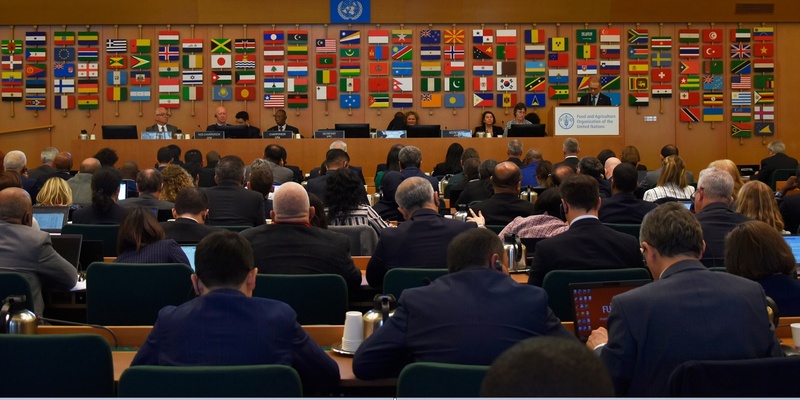PRESS RELEASE: Stronger partnerships and more investments needed to protect global plant health
Posted on Mon, 27 Mar 2023, 14:26

Rome, 27 March 2023. Plant pests remain a serious threat to plant health and to food security, the environment and economies. Investments in innovation, research, outreach and the development and adoption of plant health standards are direly needed. These were some of the underpinning points as the Commission on Phytosanitary Measures (CPM), the governing body of the international Plant Protection Convention (IPPC), opened its seventeenth session today.
While plants are vital in providing much of the food and oxygen to sustain human lives, they remain under threat from harmful pests that destroy crops and natural ecosystems.
“We lose as much as 40 percent of agricultural crops and USD 220 billion in trade losses each year, from plant pests”, said Osama El-Lissy, IPPC Secretary. “In an increasingly hungry world where 828 million people are experiencing hunger, this is unacceptable”, he added. A warming climate has also seen the rise of pest incursions in new areas, making them nearly impossible and expensive to eradicate once established. In addition, if not safeguarded, international travel and e-commerce can compound the rise of the movement of plant pests across borders.
The CPM holds annual sessions to take stock of the IPPC community’s global efforts to protect plants by developing international plant health standards and supporting parties to the Convention to adopt them.
A global roadmap to protecting plant health
The Convention, established in 1952 and has been ratified by 184 countries, makes provisions for parties to adopt the International Standards for Phytosanitary Measures to prevent the introduction and spread of plant pests.
“The IPPC Strategic Framework 2020-2030 is our roadmap to addressing global phytosanitary challenges. It guides us on the critical action needed to support countries to effectively implement the Convention and adopt standards. This framework supports the achievement of the Sustainable Development Goals, particularly in attaining zero hunger, protecting the environment and promoting safe trade to safeguard economies and livelihoods,” El-Lissy said.
Qu Dongyu, Director-General of the Food and Agriculture Organization (FAO), noted in his video message, that the FAO Strategic Framework 2022-2031 supports the IPPC Strategic Framework. “It supports the transformation to more efficient, inclusive, resilient and sustainable agrifood systems for better production, better nutrition, a better environment and a better life,” he added.
More investments needed
“We need governments, donors and partners to invest in innovative approaches to address the most pressing phytosanitary issues at the national, regional and global level,” El-Lissy said. “We need new initiatives such as a global phytosanitary program, with focus on the African region where national capacities and phytosanitary systems need investments. I encourage our contracting parties to invest in building the capacities of the NPPO workforce – the stewards of plant health – and to encourage the next generation of plant health experts to see its value and pursue this career path,” he added.
Media contact:
Mutya Frio [email protected]
WhatsApp (+39) 3334667086 (Italy)
Additional resources:

